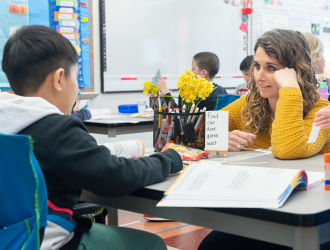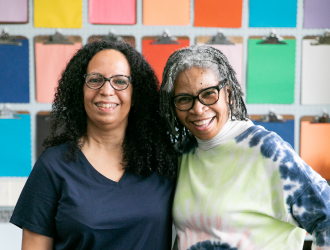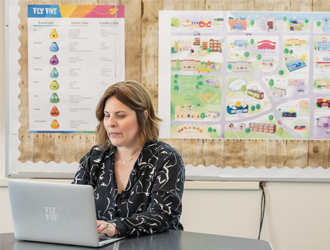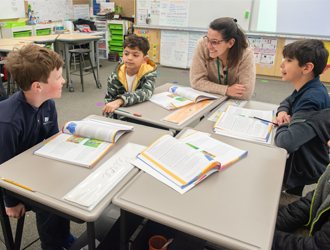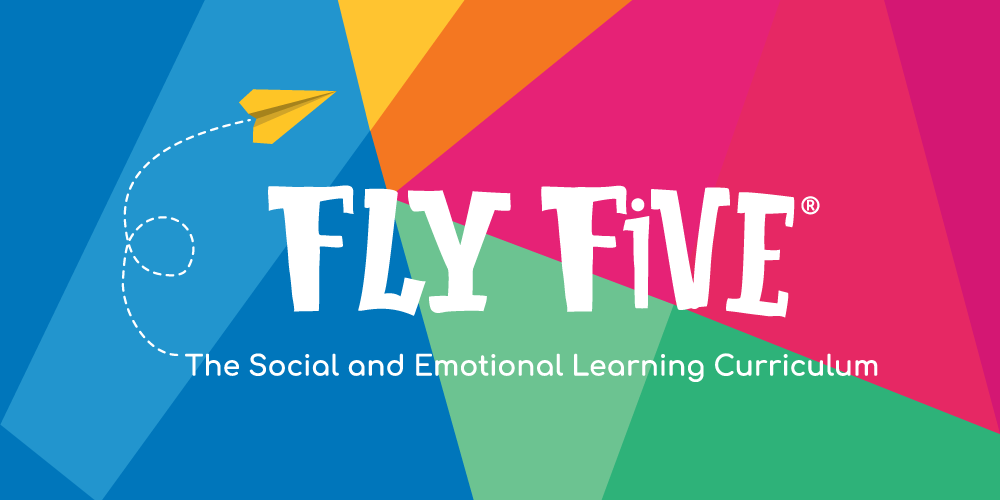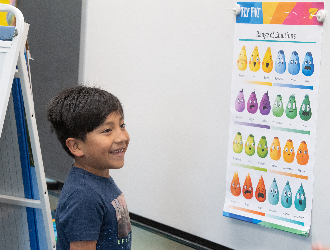How to Continue Your SEL Journey Into Adulthood
Although teachers, parents, and school leaders lead busy lives, it’s important to take time to refill your cup before you can fill another person’s cup. Bringing social-emotional practices into your daily routine—even a little bit at a time—can have a significant payoff in work, play, and relationships. Consider how SEL looks and sounds in your life and what shape it already takes as part of your well-being.

How to Continue Your SEL Journey Into Adulthood
There are many practical, quick, and fun ways to practice SEL in and out of a classroom environment. Effective SEL begins with a personal desire to improve one’s own social-emotional skill sets and putting the well-deserved time, effort, and energy into strengthening these valuable competencies. Educators, school leaders, and parents lead busy lives, which can sometimes make it feel difficult to find the time for themselves. However, even a few moments of practicing mindfulness, engaging emotional-regulation skills, or listening and empathizing with others can strengthen your SEL abilities over time and have a significant impact on your life and well-being, making it well worth the time and practice.

What Adults Can Do for Themselves
Parents, teachers, and school leaders model social-emotional skills for children, at times without even realizing it. Adults are central figures that guide the development of students’ SEL growth (Jennings & Greenberg, 2009; Denham et al., 2007), meaning that the greater the knowledge and personal experience with SEL competencies that you have, the better you will be able to guide and support your child’s or student’s development. Bringing social-emotional practices into your daily routine—even a little bit at a time—can have a significant payoff.
Consider how adults can engage in and strengthen their own social-emotional competencies with these examples:
- Regularly observe and name your emotions. With increased emotional literacy skills, it will become easier over time to observe, name, and then regulate your emotions. As challenging or uncomfortable feelings arise, it is important to remember that our feelings are valid, but we can continue to cultivate skills in order to react well. Responding in this way involves self-control, which allows us to choose how we respond to an emotional stimulus (TeensHealth, 2021) instead of reacting impulsively.
- Practice mindfulness. Engage in activities that help you slow down and reconnect to your body, mind, and spirit. Consider finding a practice that works well for you. It can include mindful movement, like going for a walk around your block, or meditating and journaling about your thoughts, hopes, and dreams. All of these examples can foster mindfulness and help you to be present in the moment.
- Use positive affirmations. Affirmations and mantras are words of encouragement and positivity that we can repeat to ourselves when managing overwhelming thoughts or emotions. Most people find that they connect more with certain affirmations and mantras than with others, so try some out to see what resonates with you. These affirmations can include statements such as “I am confident,” “I am kind,” and “I am grateful for today.”
- Remember you are not alone. It takes a village to raise a child—and to lead a healthy and fulfilling life. We do not practice social-emotional competencies in a vacuum, but rather rely on healthy relationships and support systems that make each of us unique and who we are. Whether you are scheduling walks through the park with your friends, or having dinner discussions with your family about their own SEL and beyond, you are engaging in and strengthening necessary skills that improve your overall health and well-being.

Even as adults, we are never done learning. Building social-emotional skills is a long-lasting journey that paves the way for success in all areas of life. As you consider the different ways to bring SEL into your daily routine, think about how social and emotional competence can help you to achieve your hopes and goals, maintain healthy relationships, and make more empathetic decisions. SEL can also empower you to be a more thoughtful member of your community and a better leader and educator to those around you while creating space for lifelong behavioral and social growth.
References
Denham, S. A., Bassett, H. H., & Wyatt, T. (2007). The socialization of emotional competence. In J. E. Grusec & P. D. Hastings (Eds.), Handbook of socialization: Theory and research (pp. 614–637). The Guilford Press.
Jennings, P. A. & Greenberg, M. T. (2009). The prosocial classroom: Teacher social and emotional competence in relation to student and classroom outcomes. The Review of Educational Research, 79(1), 491–525. https://doi.org/10.3102%2F0034654308325693
TeensHealth. (2021). Managing your emotional reactions. Nemours. https://kidshealth.org/en/teens/emotional-reactions.html



